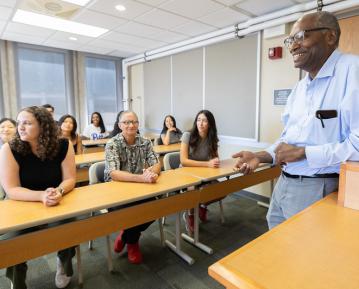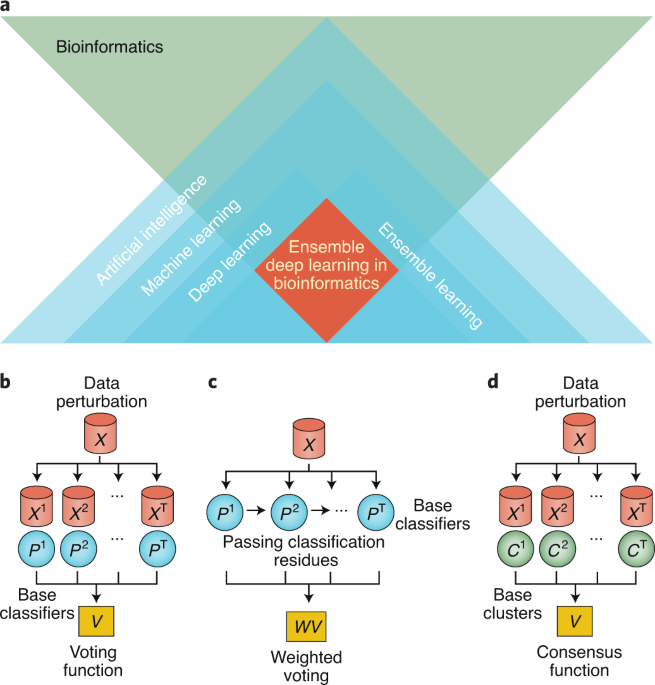Some Of Bioinformatics Tutor
Some Of Bioinformatics Tutor
Blog Article
The Best Strategy To Use For Bioinformatics Tutor
Table of ContentsSee This Report about Bioinformatics TutorGet This Report on Bioinformatics TutorNot known Incorrect Statements About Bioinformatics Tutor The Only Guide to Bioinformatics TutorNot known Incorrect Statements About Bioinformatics Tutor
Of the overall individuals associated with the training, 80% were students from public higher education and learning institutions, while the remaining 20% originated from private establishments. To certify for a certification of participation, trainees were needed to participate in at the very least 90% of the total training hours. As an outcome of this need, an excellent 95% of the individuals successfully acquired their certifications, having not just fulfilled the minimum participation standards but additionally completed all designated activities throughout the training.
Throughout the height of the COVID-19 pandemic, particularly between June and August 2020, the task team was tasked with organizing specialized training in bioinformatics. This training was especially targeted at pupils from the research study team Center for Study in Applied Computing at the Federal College of Pará (UFRA) The adjustment to remote understanding platforms because of the pandemic developed a chance to discover new mentor methodologies and digital devices that boosted both reach and efficiency.
This training course was created to supply an easily accessible yet detailed summary of Artificial Intelligence strategies, particularly as applied in bioinformatics (Bioinformatics Tutor). This digital style allowed participation from students throughout Brazil, several of whom may not have had the opportunity to attend in-person sessions.
4 Easy Facts About Bioinformatics Tutor Described
Around 50% of the total training hours were devoted to functional tasks where students developed smart designs and applications in a variety of clinical domain names, including genes, molecular biology, and environmental information evaluation. These platforms enabled trainees to involve in real-time information adjustment, model training, and algorithm testing.
The program attracted 80 participants in total amount. Sixty of them were connected with numerous college establishments in the state of Pará, while the remaining twenty came from organizations located in 5 various other Brazilian states. This wide geographical depiction highlighted the nationwide passion in bioinformatics and the growing demand for specialized skills around. By introducing Expert system in a appropriate and sensible context, the initiative served to link the space in between concept and real-world application, supplying students with a solid foundation for future research or employment in the field.
The training effort formed component of a more comprehensive scholastic outreach initiative understood as the Bioinformatics when traveling job. This job has, for many years, presented lots of pupils to the world of bioinformatics and computational biology. The occasions held under this umbrella effort have happened throughout numerous areas and years, as summed up in Table 1 (List of occasions, areas, years, a fantastic read and total varieties of trainees and instructors)
Numerous of these teams, initially brought with each other by their involvement in training occasions, have because gone on to generate independent clinical research in partnership with regional scholastic establishments. The training not only cultivated clinical reasoning within the context of bioinformatics but additionally triggered joint partnerships that expanded past the training setting.
An Unbiased View of Bioinformatics Tutor
The same group, omitting IH and RR, also acted as tutors for the practical training components. Funding for the task was supplied with the grant 88887.200562/ 2018-00 from CAPES.
The Federal College of Pará's Office of Research (PROPESP/UFPA) additionally supplied financial backing, especially for the manufacturing of the final manuscript. The writers state no commercial or economic conflicts of passion that could have affected the study. All opinions and interpretations shared in this article are entirely those of the writers and do not always reflect those of their particular establishments, the publisher, editors, or reviewers included in the publication procedure.

Bioinformatics Tutor Can Be Fun For Anyone
From a pedagogical viewpoint, the training strategy made use of in the training was purposefully interactive. Courses were carried out in a way that encouraged student participation and conversation, surpassing memorizing memorization to check out exactly how ideas are created, used in every day life, and evaluated in academic settings. The educational ideology go right here concentrated on supporting both strong and struggling students, giving customized support, and structure self-confidence with sustained mentorship and perseverance.

Each team, containing roughly 36 participants, was supported by 3 advisors-- a lot of whom were postdoctoral scientists with specific expertise. These advisors not just assisted develop the group projects but also promoted their implementation, making certain that each study concern was both appropriately challenging and relevant. The goal was to supply a biologically sensible context that individuals might explore via open-ended objectives and accessibility to curated datasets.
For additional understandings into the methodology and end results of this project-based discovering method, viewers are guided to S1 Text, which consists of in-depth descriptions of the instructional structure, examination strategies, and task themes utilized in the training sessions.
The smart Trick of Bioinformatics Tutor That Nobody is Discussing
Of the total individuals entailed in the training, 80% were students from public higher education and learning navigate to this website organizations, while the continuing to be 20% came from private organizations. To certify for a certificate of involvement, trainees were called for to participate in at least 90% of the overall training hours. Especially, past the students who signed up in the training sessions, 7 experienced trainers took part in delivering the courses, while three specialized research professors collaborated the total training process. Around 50% of the complete training hours were dedicated to practical activities where students built intelligent models and applications in a range of scientific domains, including genetics, molecular biology, and environmental data analysis. The training not just cultivated clinical reasoning within the context of bioinformatics yet likewise stimulated collective connections that prolonged beyond the training atmosphere.
Report this page